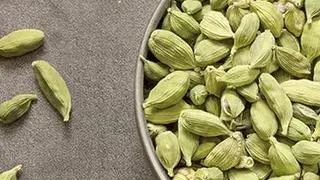The Food and Agriculture Organisation on Wednesday said short-term policy actions, especially curbs on exports, could have harmful effects in the longer term and even aggravate the situation.
In statement put on its website, the organisation, a body of the United Nations, pointed out at the 2007-08 crisis in the global food market as an example of how such decision can exacerbate the situation rather than mitigate it.
In the background of the FAO Food Index hitting a record in December, the UN body came up with an updated guide for policy makers in developing countries to address impacts of high food prices.
“The experience of the 2007-2008 food crisis shows that in some cases, hastily taken decisions by governments to mitigate the impact of the crisis, have actually contributed to or exacerbated the crisis and aggravated its impact on food insecurity,” said Mr Richard China, Director of FAO's Policy and Programme Development Support Division.
“Export restrictions, for example, applied by some surplus food-producing countries, exacerbated the global food market situation during the 2007-2008 crisis. FAO strongly advises against such measures, as they often provoke more uncertainty and disruption on world markets and drive prices up further globally, while depressing prices domestically and hence curtailing incentives to produce more food,” he said.
In a way, this could be seen as a criticism of policies of India and Russia. In 2008, India banned rice exports on lower procurement by the Food Corporation of India. In 2006, it barred sugar exports as prices began to surge in the domestic market. Last year, cotton exports were suspended for a few months before a cap of 55 lakh bales (170 kg) was fixed for the current season ending September. On the other hand, the Government banned onion exports after prices surged at retail outlets to nearly Rs 100 a kg.
Russia, on the other hand, banned wheat exports after its production dropped 5 million tonnes owing to the worst drought in five decades.
Referring to the current inflationary trend in food prices, Mr China said: “With this new price shock only two years after the crisis in 2007-08 there is a serious concern now about implications for food markets in vulnerable countries.”
The statement said that low income food deficit countries were have been hit hard by high food prices in recent years and many of them had to pay larger food import bills.
People affected by higher food prices are net food buyers such as urban residents and small farmers besides agricultural labourers who do not produce enough food to cover their needs. The poorest amongst them spend over 70-75 per cent of their income on buying food, the statement said.
Net food exporters should benefit from high food prices but the 2007-08 experience showed that a variety of supply side constraints limited supply response to higher prices in most developing countries.
Guideline released
A guideline released by the organisation says that there is no “one size fits all” solution that can be applied with the same chance of success in every country. A mix of policy actions has to be taken that could be specifically adapted to local conditions.
In any case, care should be taken not to adopt measures that could undermine the existing market, it said. “Attempts should be made to get the full cooperation of market operators to address the situation. In cases where markets are malfunctioning or absent, it may be necessary to take extreme measures that shortcut market mechanisms. In this situation, interventions could also be used to help private sector operators emerge,” it said.
In the medium and longer term only investment in developing countries' agricultural sectors will result in sustainable increases in productivity, healthy markets, increased resilience to international price spikes and improved food security, Mr China said.
The guideline favours community seed production, farmer groups or cooperatives to enhance access to both traditional and improved seed varieties at the community level. It urges countries to apply integrated pest management, based on a thorough understanding of agro-ecosystems that will allow farmers to reduce the use of pesticides.






Comments
Comments have to be in English, and in full sentences. They cannot be abusive or personal. Please abide by our community guidelines for posting your comments.
We have migrated to a new commenting platform. If you are already a registered user of TheHindu Businessline and logged in, you may continue to engage with our articles. If you do not have an account please register and login to post comments. Users can access their older comments by logging into their accounts on Vuukle.